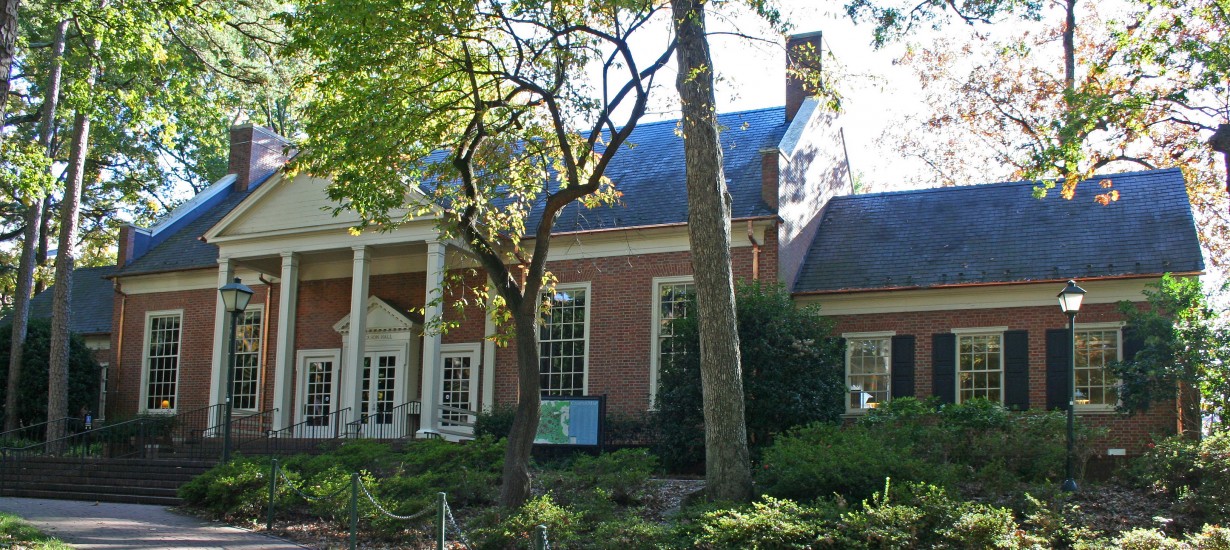- Membership
- Perks and Discounts
- Things To Do
- Resources
- News
- About
- Shop
Related Content
Board of Governors Considering Reinstating SAT, ACT Requirement
March 6, 2024
Four years after passing a temporary waiver on requiring students to submit standardized tests scores...
Read MoreUNC to Pay $4.8 Million to Group That Sued Over Affirmative Action
Jan. 31, 2024
UNC has agreed to pay $4.8 million to cover the fees and expenses that Students...
Read MoreTrustees Resolve to Apply Court Ruling to Admissions, Hiring, Contracting
July 31, 2023
UNC’s Board of Trustees last week passed an antidiscrimination resolution aimed at more broadly applying...
Read More-
2024
-
2023
-
2022
-
2021
-
2020
-
2019
-
2018
-
2017
-
2016
-
2015
-
2014
-
2013
-
2012
-
2011
-
2010
-
2009
-
2008
-
2007
-
2006
-
2005
-
2004
- Academics and Athletics
- Admissions
- Alumni Profiles
- Alumni Recognition
- Around Town
- Arts
- Books
- Campus Profile
- Campus Safety
- Carolina Alumni Awards
- Carolina Alumni Leadership
- Carolina Alumni Programs and Outreach
- Carolina Alumni Reunions
- Carolina Alumni Review
- Celebrations
- Championships
- College and Costs
- Commencement
- Coronavirus
- Discovery
- Extracurricular
- Faculty
- Faculty Awards
- For the People
- Go Heels
- Greek Life
- Hark the Sounds
- Higher Education
- Homecoming
- In Class
- In Memoriam
- Innovation and Technology
- Issues
- Object Lesson
- On View
- Our Treescape
- Philanthropy
- Podcast
- Public Service
- Race and Reckoning
- Research
- Sexual Assault
- Silent Sam
- Sports
- Structures
- Student Achievement
- Students
- Timelines
- Tuition and Financial Aid
- UNC Libraries
- UNC’s History
- Undergraduate Spotlight
- University Achievements
- University Awards
- University Budget Issues
- University Development
- University Leadership
- University News
- University Rankings
- What We Do
- Who We Are
- Young Alumni
- Yours at Carolina
Fine OK’d After Carolina Exceeds Admissions Cap for Second Straight Year

The University has been ordered by the UNC System Board of Governors to give up slightly more than $1 million in state funds after exceeding the 18 percent cap on out-of-state admissions for two years in a row.
The action of the full board in early March came a day after the BOG’s Budget and Finance Committee had recommended the penalty be waived.
The BOG decreed in 1986 that no more than 18 percent of an entering freshman class of 15 of the 16 system universities could be from outside North Carolina; the cap does not apply to the UNC School of the Arts in Winston-Salem. The cap is the subject of periodic debate, especially on a campus such as Chapel Hill, which competes nationally with schools with much more liberal out-of-state allowances.
BOG policy says that a school that exceeds the cap for two consecutive fiscal years will have its state operating budget reduced.
UNC exceeded the cap by 0.3 percent in the 2014 entering class (41 admitted students) and by 1.5 percent in 2015 (76 students).
According to BOG policy, the penalty is based on the funding requirements for one student at the campus in question, multiplied by the number of students that exceeds the cap.
Steve Farmer, vice provost for enrollment and undergraduate admissions, said that UNC’s entering classes, when averaged over the past 10 years, are “more than 82 percent North Carolinian.”
The $1,041,017 taken from Carolina’s 2016-17 fiscal year allocation was reallocated to the system’s Need-Based Grant Financial Aid Program for resident undergraduate students from North Carolina.
Last fall, a total of 21,666 out-of-state students applied to enter Carolina as freshmen; of those, 4,180 were admitted and 855 subsequently enrolled. Applications to Carolina have increased significantly since 2011, after the University began using the Common Application. This application, the product of a nonprofit association, can be used to apply to any of more than 450 member colleges and universities in and outside the U.S. While it streamlines the processing of applications, the Common App also makes it easier for students to apply to more schools.
The University started limiting out-of-state admissions in 1946, when a 15 percent cap was imposed on UNC, N.C. State and Woman’s College (now UNC-Greensboro). But there were exceptions: At times, children of alumni were treated as North Carolinians no matter where they lived, as were out-of-state scholarship recipients, and the cap wasn’t vigorously enforced.
© 2024 Carolina Alumni
